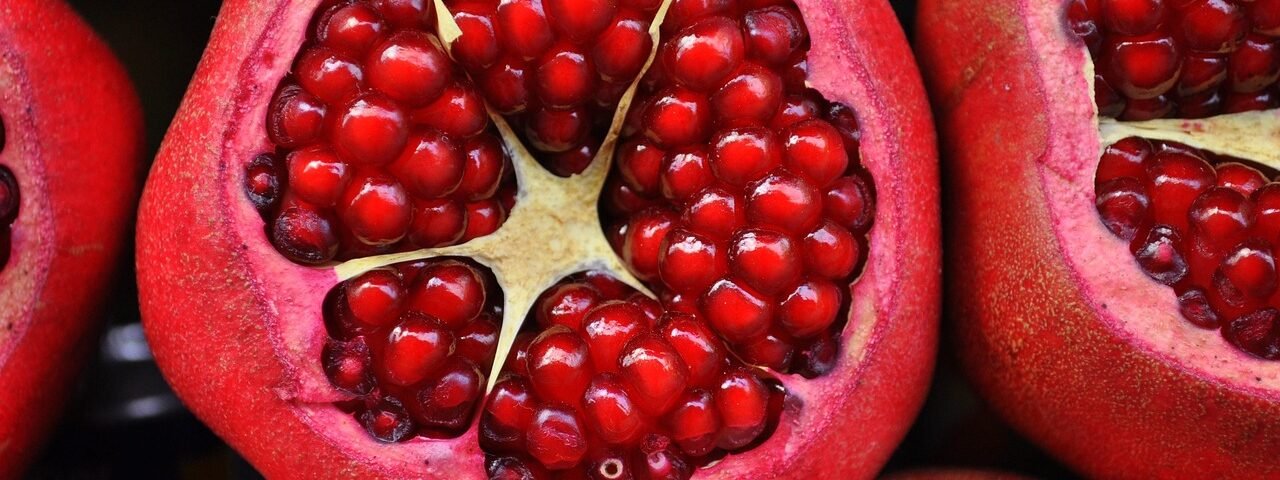If fruits had a red carpet, the pomegranate would be the showstopper — radiant, mysterious, and overflowing with history.
This ancient fruit has dazzled civilizations for thousands of years, originating in Persia and spreading across the Mediterranean. The pomegranate has been mentioned in the Bible, celebrated in Greek mythology, and revered as a symbol of fertility, prosperity, and eternal life.
In Greek legend, Persephone’s fateful taste of pomegranate seeds was said to bring on the change of seasons. In Persian folklore, the fruit represented immortality. Even today, it remains a centerpiece in Jewish, Indian, and Chinese traditions as a sign of abundance and renewal.
For retirees looking to eat well, stay sharp, and age vibrantly, the pomegranate is a true gift from history — one that nourishes both body and soul.
Why the Pomegranate Deserves a Spot on Your Table
Pomegranates aren’t just beautiful to look at — they’re nutritional powerhouses bursting with antioxidants, vitamins, and minerals. Here’s why they’ve earned the nickname “the jewel of fruits.”
Heart Health Hero
Pomegranates are rich in polyphenols and punicalagins, potent antioxidants that help reduce inflammation and support cardiovascular health. Studies show that pomegranate juice may help lower blood pressure and cholesterol, keeping your heart running smoothly — no tune-up required.
Brain-Boosting Benefits
For seniors interested in foods that support memory and focus, pomegranates are a standout. Research indicates that the fruit’s antioxidants help protect against cognitive decline and improve recall. Consider it nature’s way of keeping your mind as sharp as your wit.
Bone and Joint Support
If your joints creak louder than your floorboards, pomegranates may help. Their natural anti-inflammatory compounds can reduce stiffness and pain associated with arthritis. Regular consumption may help you stay more flexible and active.
Immune System and Skin Glow
Packed with vitamin C, pomegranates strengthen your immune system and promote collagen production — supporting healthy skin and faster healing. Who knew your best beauty secret might come from the produce aisle?
Digestive and Metabolic Support
Pomegranates provide a good dose of dietary fiber, helping with digestion and promoting a healthy gut microbiome. For retirees focusing on balanced nutrition, this fruit supports both comfort and energy levels.
How to Pick, Prep, and Enjoy Pomegranates
If you’ve ever tried to open a pomegranate and ended up redecorating your kitchen in splashes of red, here’s the trick: Cut off the top, score the sides gently, and submerge the fruit in a bowl of water. The seeds (called arils) will sink, and the pith will float to the top. No mess, no stained shirt. You can eat the arils fresh, add them to salads or yogurt, or use pomegranate juice in cooking and beverages. It’s one of the most versatile fruits you can keep in your kitchen.
How to Juice a Pomegranate
Juicing a pomegranate is easier than you might think — and far less messy with the right approach. Start by cutting the fruit in half, just as you would an orange. Hold one half over a bowl and use a wooden spoon to tap the back firmly, releasing the arils (seeds). Once you’ve collected enough, place them in a blender and pulse a few times to break the seeds open, 15 to 20 seconds — but don’t over-blend, or you’ll crush the bitter white centers. Pour the mixture through a fine mesh strainer or cheesecloth, pressing gently to extract every drop of juice. The result is a deep red, antioxidant-rich elixir that’s perfect for sipping, mixing into sparkling water, or using in salad dressings and marinades.
Other juicing methods include using a manual hand press or an electric citrus juicer. Cut pomegranates in half and press down on the cut side onto the juicer’s cone. This method is efficient and fast but also messy! Prepare for the mess by covering your countertops with a towel or plastic to prevent staining. Also rubber gloves will protect your hands and a plastic covering over the juicer will contain any splattering.
How to Freeze Pomegranate Arils
Freezing pomegranate arils (seeds) is a great way to enjoy this superfruit year-round. After removing the arils from the pith, spread them in a single layer on a parchment-lined baking sheet. Place the tray in the freezer for one to two hours, just until the seeds are firm. Once frozen, transfer them to an airtight freezer bag or container, squeezing out as much air as possible. Label with the date, and store for up to six months. When you’re ready to use them, simply take out the amount you need — no thawing required. They’re perfect for tossing into smoothies, sprinkling over yogurt, or adding a burst of flavor to salads and desserts.
Easy and Delicious Pomegranate Meal Ideas
Looking for simple ways to enjoy this antioxidant-rich fruit? Try these easy recipes that fit perfectly into any heart-healthy meal plan.
Pomegranate Spinach Salad
Toss baby spinach with pomegranate seeds, toasted walnuts, goat cheese, and a drizzle of balsamic vinaigrette. It’s fresh, flavorful, and ideal for lunch or a light dinner.
Glazed Chicken with Pomegranate Reduction
Simmer pomegranate juice with honey, garlic, and a splash of balsamic vinegar until it thickens. Brush the glaze over baked or grilled chicken for a sweet-tart finish that’s restaurant-worthy.
Sparkling Pomegranate Mocktail
Combine pomegranate juice with sparkling water, a squeeze of lime, and fresh mint. It’s a festive, alcohol-free drink that’s refreshing and good for your heart.
Pomegranate Chia Pudding or Greek Yogurt Parfait

Mix chia seeds, almond milk, a drizzle of honey, and a splash of pomegranate juice. Refrigerate overnight and top with fresh seeds in the morning. It’s a perfect make-ahead breakfast packed with fiber and omega-3s.
Or create a delicious parfait by layering Greek yogurt, pomegranate seeds, and granola for a protein-rich breakfast or satisfying dessert. Add chia seeds to the yogurt for a protein boost. Both the parfait and the pudding are quick, colorful, and full of antioxidants.
Pomegranate Molasses
Pomegranate molasses is a common ingredient in Middle Eastern and North African cuisines. It is very easy to make. Just bring your pomegranate juice to a boil and simmer uncovered for about an hour. To test if it is done, dip a spoon into the liquid. If it coats the spoon, the molasses is done. A sweeter version can be made by adding sugar and lemon juice. (4 cups pomegranate juice, 1/4 cup lemon juice and 1/2 cup sugar).
A Fruit with a Past — and a Future Worth Celebrating
Pomegranates have been nourishing humans for thousands of years — and they’re still going strong. From their ancient symbolism of life and abundance to their proven health benefits for modern living, they’re the perfect blend of tradition and nutrition.
For retirees and seniors who value health, flavor, and a touch of history, this timeless fruit offers all three. Add pomegranates to your shopping list, and let every ruby-red bite remind you that age, like fine fruit, only makes things richer.


